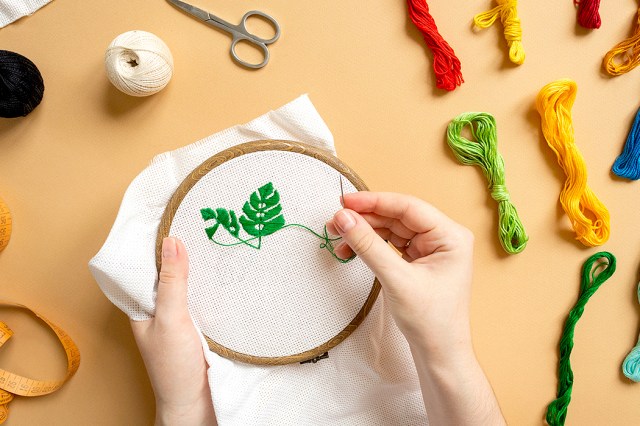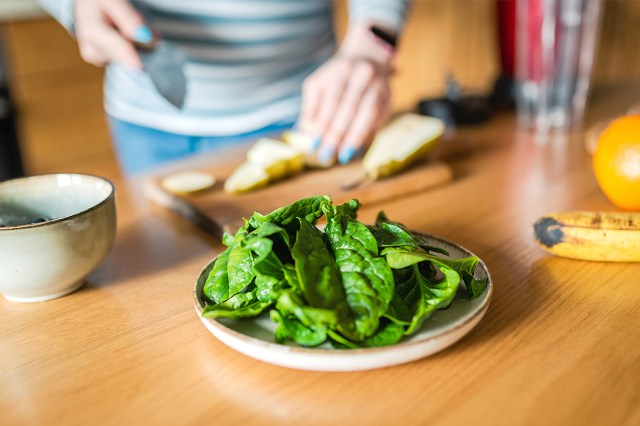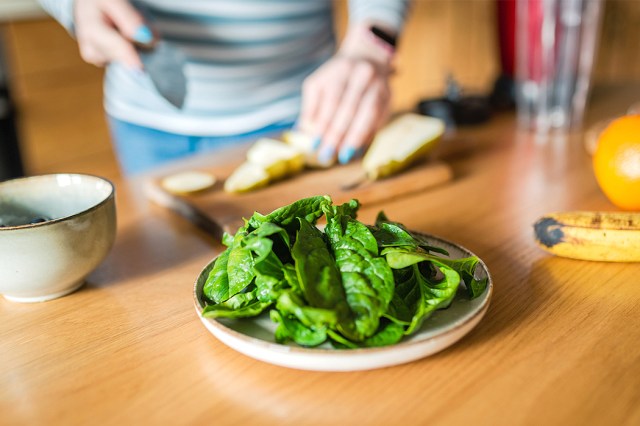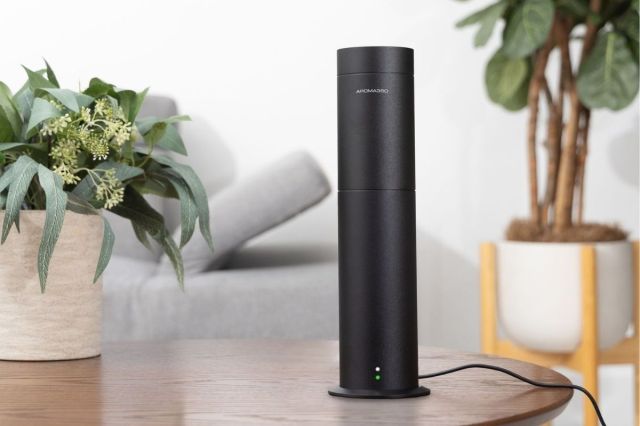Feeling stressed is an unfortunate part of being human. You can blame work, personal commitments, or major life transitions for feeling anxious or overwhelmed, though scientists agree that the underlying culprit in how our bodies respond to stressful situations is a hormone called cortisol. This chemical helps our brains regulate mood and tackle challenges, though it can also affect blood pressure, blood sugar levels, and sleep cycles. Excessive stress can cause cortisol to stay too high for too long, triggering headaches, insomnia, weight gain, and memory issues. Luckily, a few small daily habits can combat cortisol. Research shows you don’t have to do them all — incorporating just one or two can be enough to reduce stress and help you find a sense of calm.

Keep a Gratitude Journal
At the end of a hard day, keeping sight of all the good things in life can be difficult. But doing so can actually reduce stress. Expressing gratitude allows our brains to release dopamine and serotonin, two hormones that help us feel happier, and some research suggests gratitude can help us work through challenges. Journaling at the beginning or end of the day about what you’re thankful for — no matter how small — can introduce these stress-reducing benefits to your body.

Read a Book
Getting lost in a story can whisk you far away from stress. A 2009 study from researchers at the University of Sussex found that reading 30 minutes daily can reduce stress by up to 68%. That half-hour of uninterrupted reading also lowers your heart rate and reduces muscle tension. However, there is one rule for making this trick work: avoid reading about stressful topics like politics or news and instead dive into a book you enjoy, whether it’s fiction or nonfiction.

Spend Time Outdoors
A little time outdoors daily can help you feel happier and less anxious. A 2019 study from researchers at Harvard Medical School found that short periods in nature help people feel less stressed nearly immediately. Sitting in a small courtyard or walking through a public park can drastically drop cortisol levels within 20 minutes, regardless of the time of day or where you live.
Reader Favorites

Enjoy a Creative Hobby
It might seem obvious that participating in your favorite hobby is a stress reliever, though you may not realize how effective it is. Engaging in creative activities can reduce cortisol levels by 75% and elevate your mood and attitude. Team and group hobbies count, too, with the extra benefit of community support and friendship — two factors that also improve mental health. Leisure time activities don’t have to be done daily, though blocking out regular time in your schedule, no matter how busy, can ensure they happen.

Eat Magnesium-Rich Foods
Magnesium supplements have become trendy on social media and are promoted to help induce calmness and better sleep. Researchers say there’s some scientific backing to these claims. Magnesium helps regulate neurotransmitters in the brain — aka the chemical messengers that control your body’s response to stress — keeping them from overdrive and worsening stress or anxiety. However, you don’t have to purchase a magnesium supplement to get this perk. Consuming a diet of magnesium-rich foods such as nuts, beans, dairy, whole grains, and dark leafy greens works, too, because your body best absorbs this mineral from food. Make sure to consult your doctor before taking any supplements.

Get Better Sleep
Stress can cause you to toss and turn at night, getting little rest and in turn, making stress even worse. Without a good night’s sleep, our brains and bodies cannot fully rest and recharge, impacting our mood, judgment, and memory. However, quality sleep decreases cortisol levels, so fostering good sleep habits during stressful times is critical. According to the American Psychological Association (APA), most Americans can benefit mentally and physically from an extra 60 to 90 minutes of sleep each night.
Featured Image Credit: Vasil Dimitrov/ iStock
More From Our Network
Better Report is part of Inbox Studio, an email-first media company. *Indicates a third-party property.

















